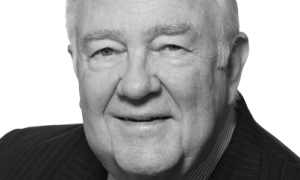When Sen. Joseph Biden chaired confirmation hearings for Supreme Court nominee Ruth Bader Ginsburg in 1993, he established certain rules for questioning nominees -- rules that some of his fellow Democrats seem to have conveniently forgotten.
Ginsburg, while a smart lawyer, had been a radical activist. Her record as an ACLU litigator placed her far outside the mainstream of American law. She had argued for legalizing prostitution, against separate prisons for men and women, and had speculated that there could be a constitutional right to polygamy.
Some Republican senators wanted to know whether she still held such extreme views. On question after question, though, she refused to answer: The Biden rules stipulated that she had no obligation to answer questions about her personal views or on issues that might come before the Court. Despite her silence, the Senate confirmed Ginsburg, 93-3.
Yet as President Bush and Judge John Roberts left the White House podium last week, three Democratic senators -- Patrick Leahy, Richard Durbin and Chuck Schumer -- were already promising to violate the "Ginsburg Rule," not to mention the Model Code of Judicial Conduct.
Canon 5 of the Model Code, among others, forbids judges or judicial candidates from indicating how they will rule on issues likely to come before the courts or making any statement that would create the appearance they are not impartial. This rule is critical to an independent judiciary. Justices must remain open-minded when an actual case comes before them. They must not even hint how they would rule.
The obstructionists' ploy will be either to twist Roberts's arm to make him answer unethical questions, or if he refuses, to make hay with his (appropriate and ethical) silence. Yet Ginsburg's confirmation hearing entirely deflates this argument.
Sen. Biden began the hearing by noting that nominees almost never testified during their confirmation hearings prior to 1955. In 1949, one nominee was called to testify but refused and was still confirmed. Biden warned senators not to ask questions about "how [Ginsburg] will decide any specific case that may come before her." Ginsburg, then serving on the same court as Judge Roberts does today, followed Biden's roadmap.
Sen. Leahy asked about the religion clauses of the First Amendment. Ginsburg responded simply: "I prefer not to address a question like that." Leahy pressed for her interpretation of Supreme Court precedent on the subject, but Ginsburg again demurred: "I would prefer to await a particular case." Leahy finally backed off: "I understand. Just trying, Judge. Just trying."
Sen. Strom Thurmond asked whether Ginsburg thought states could "experiment with and provide for diverse educational environments aided by public funding." Ginsburg refused to give an answer: "Sen. Thurmond, that is the kind of question that a judge cannot answer at-large." The senator asked a narrower question about the "constitutionality of some form of voucher system." Ginsburg replied, "Sen. Thurmond, aid to schools is a question that comes up again and again before the Supreme Court. This is the very kind of question that I ruled out."
Ginsburg refused two senators' requests to address homosexual rights. "[A]nything I say could be taken as a hint or a forecast on how I would treat a classification that is going to be in question before a court." In fact, she exercised the Rule to avoid answering any questions relating to sexual orientation: "I cannot say one word on that subject that would not violate what I said had to be my rule about no hints, no forecasts, no previews."
When pressed on another issue, she refused to discuss her "personal reactions" to a particular Supreme Court case. "I have religiously tried to refrain from commenting on a number of Court decisions that have been raised in these last couple of days." Indeed.
Near the end of her hearing, Ginsburg explained, "my own views and what I would do if I were sitting in the legislature are not relevant to the job for which you are considering me, which is the job of a judge." The same job, it should be noted, for which Judge Roberts has been nominated.
Sens. Leahy, Durbin and Schumer already have announced they won't honor the Ginsburg Rule for Republican nominees. They are certain to ask inappropriate and wrongful questions of John Roberts, and he is certain not to violate the Code of Judicial Conduct. If senators then pretend to oppose him because of this, their shameful conduct should be seen for what it is.
Edwin Meese, a former U.S. Attorney General, is Chairman of the Center for Legal and Judicial Studies at The Heritage Foundation (heritage.org). Todd Gaziano, who has worked as an attorney in all three branches of the federal government, is Director of the Center.
Distributed nationally on the Knight-Ridder Tribune Wire




